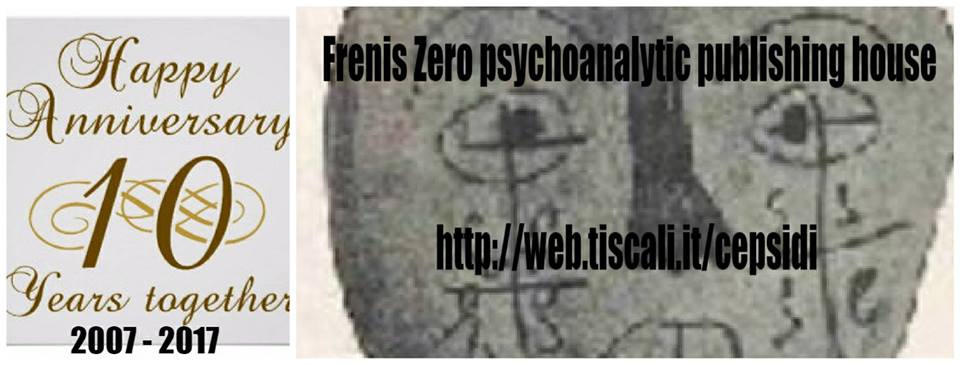|
A.S.S.E.Psi.
web site (History of Psychiatry and Psychoanalytic Psychotherapy
)
A.S.S.E.Psi.NEWS
(to subscribe our monthly newsletter)
Ce.Psi.Di. (Centro
di Psicoterapia Dinamica "Mauro Mancia")
Maitres
à dispenser (Our reviews about psychoanalytic congresses)
Biblio
Reviews (Recensioni)
Congressi
ECM (in italian)
Events
(our congresses)
Tatiana Rosenthal
and ... other 'psycho-suiciders'
Thalassa.
Portolano of Psychoanalysis
PsychoWitz - Psychoanalysis and Humor (...per ridere un po'!)
Giuseppe Leo's Art
Gallery
Spazio
Rosenthal (femininity and psychoanalysis)
Psicoanalisi
Europea Video
Channel
A.S.S.E.Psi. Video
Channel
Ultima uscita/New issue:
"My
Ideas Felt Like Outsize Clothes. A tale for Etty Hillesum"
(Second Edition)
by
Giuseppe Leo
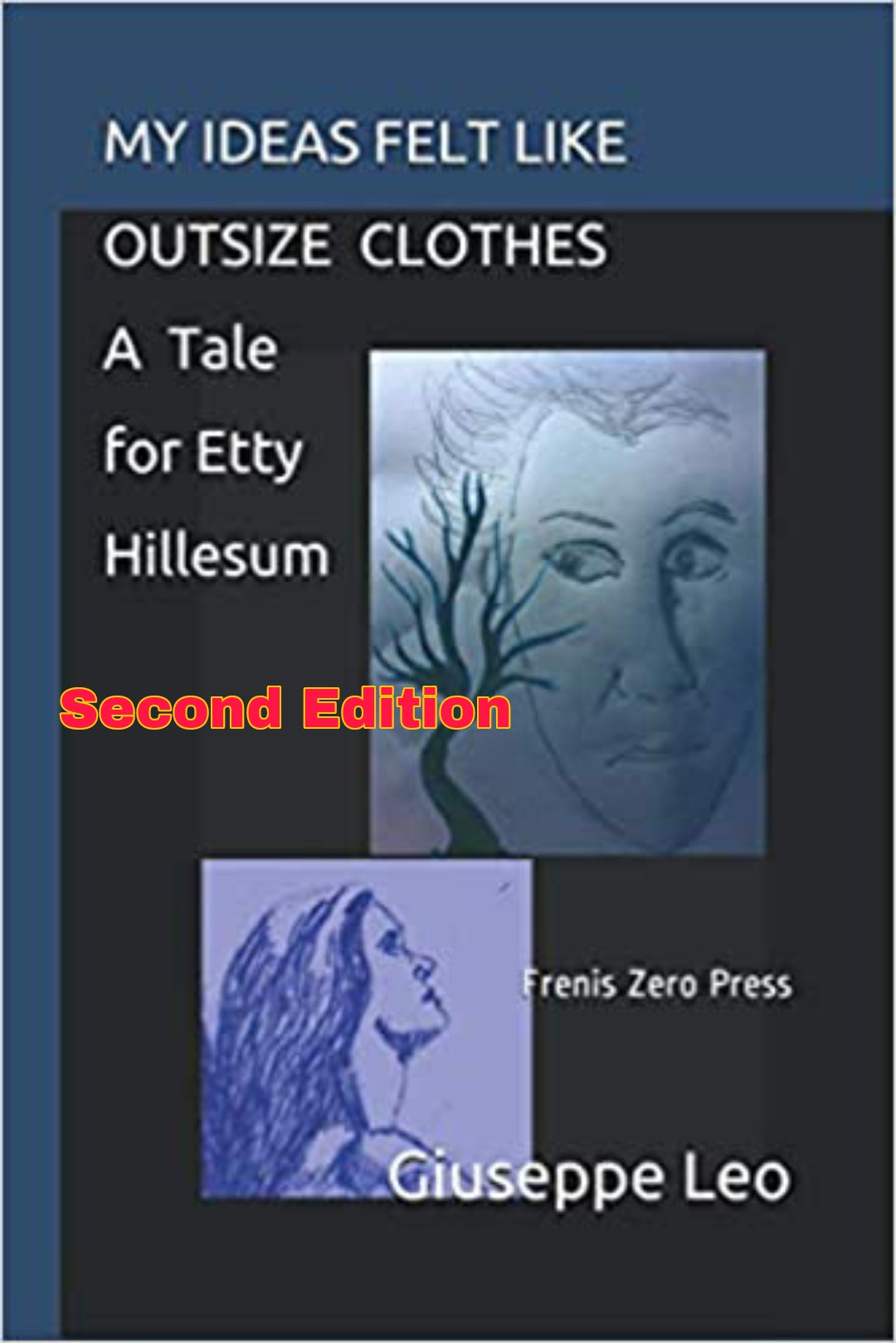
Editore/Publisher: Edizioni Frenis Zero
ISBN: 978-88-97479-28-4
Anno/Year: 2021
Pages: 128
Click
here to buy the book/Compra su Amazon

"Infant
Research and Psychoanalysis" (Third Edition) edited
by Giuseppe Leo
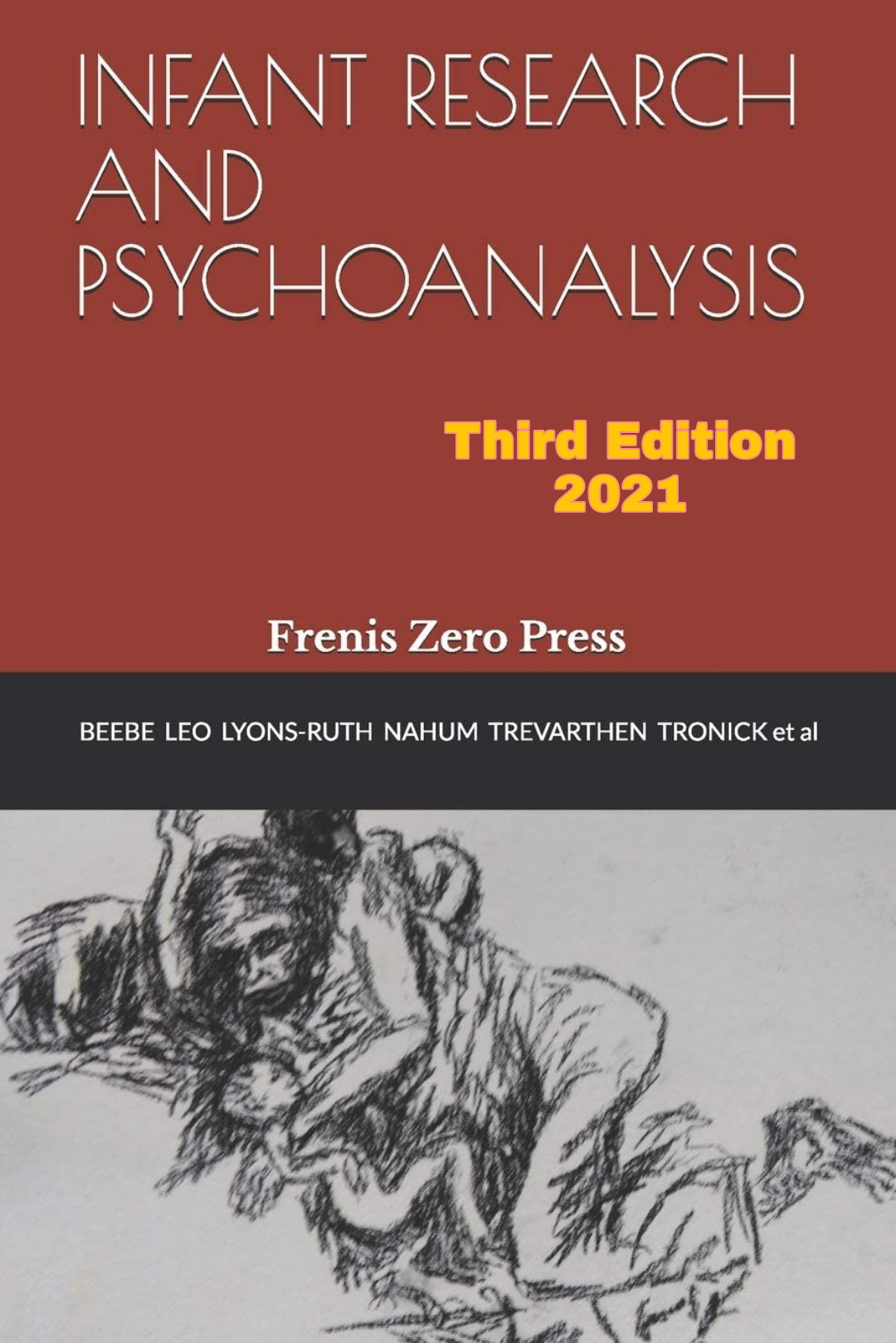
"
Edited
by Giuseppe Leo
Writings
by: B. Beebe K.
Lyons-Ruth J. P. Nahum D. Schechter
E. Solheim C.
Trevarthen E. Z. Tronick
L.
Vulliez-Coady
Publisher:
Frenis Zero
Collection:
Borders of Psychoanalysis
Year:
2021
Pages:
285
ISBN: 978-88-97479-24-6
Click
here to buy the book/Compra su Amazon

"Psychanalyse,
Lieux de Mémoire et Traumatismes Collectifs" (Third
Edition) edited by
Giuseppe Leo
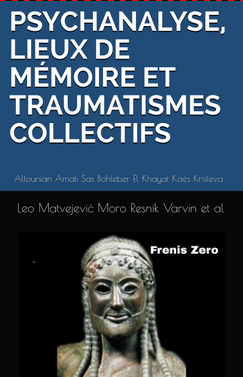
Writings by: J. Altounian, S. Amati Sas, W.
Bohleber, M. El Husseini, R. El Khayat, Y. Gampel R. Kaës, J.
Kristeva, G. Leo, A. Loncan, P. Matvejević, M.-R. Moro, S.
Resnik, S. Varvin
Editore/Publisher: Edizioni Frenis Zero
ISBN: 978-88-97479-22-2
Anno/Year: 2021
Pages: 546
Click
here to buy the book/Compra su Amazon

"Enactment
in Psychoanalysis" - Second Edition) edited by
Giuseppe Leo & Giuseppe Riefolo
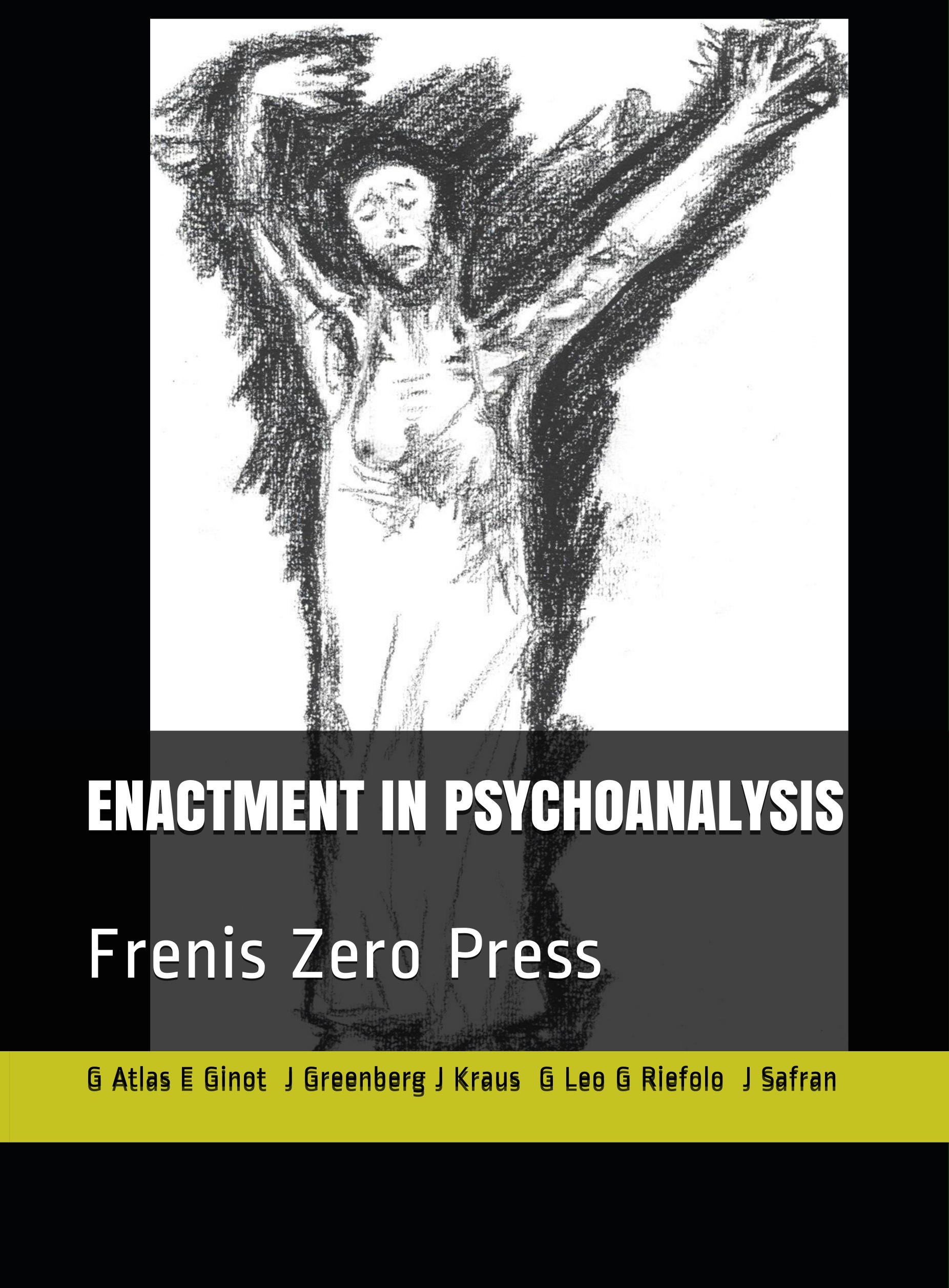
Edited
by Giuseppe Leo & Giuseppe Riefolo
Writings
by: G. Atlas E. Ginot J.R.
Greenberg J. Kraus J.D. Safran
Publisher:
Frenis Zero
Collection:
Borders of Psychoanalysis
Year:
2020
Pages:
333
ISBN: 978-88-97479-19-2
Click
here to buy the book/Compra su Amazon

"My
Ideas Felt Like Outsize Clothes. A tale for Etty Hillesum" by
Giuseppe Leo
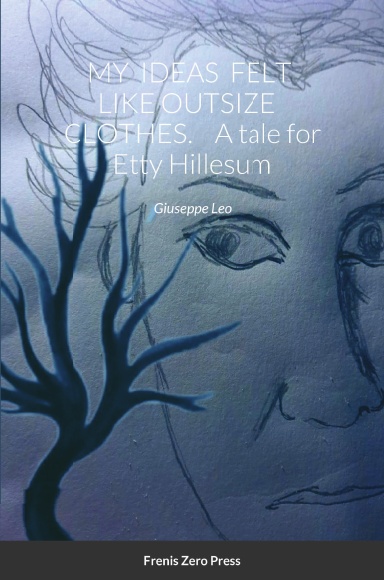
Editore/Publisher: Edizioni Frenis Zero
ISBN: 978-88-97479-33-8
Anno/Year: 2020
Pages: 122
Click
here to order the book/Ordina
su Lulu

"Environmental
Crisis and Pandemic. A Challenge for Psychoanalysis"
edited by Giuseppe Leo (Second
Edition)

Writings by: H. Catz, A. Ferruta,
M. Francesconi, P. R. Goisis, R. D. Hinshelwood, G.
Leo, N. McWilliams,
G. Riefolo, M. Roth, C.
Schinaia, D. Scotto Di Fasano, R. D. Stolorow
Editore/Publisher: Edizioni Frenis Zero
ISBN: 978-88-97479-37-6
Anno/Year: 2020
Pages: 312
Click
here to order the book/Ordina
su Lulu

Click
here to buy the book/Compra su Amazon

"Psychanalyse,
Lieux de Mémoire et Traumatismes Collectifs" sous
la direction de Giuseppe Leo
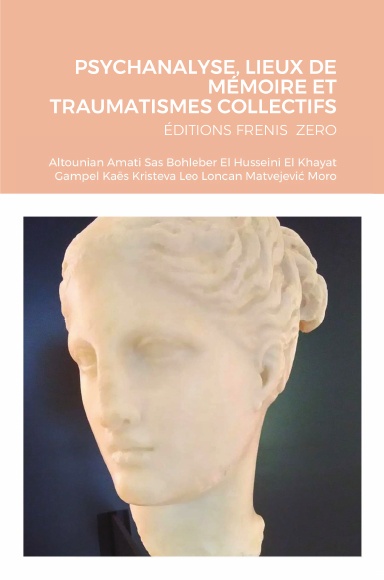
Writings by: J. Altounian, S. Amati Sas, W.
Bohleber, M. El Husseini, R. El Khayat, Y. Gampel R. Kaës, J.
Kristeva, G. Leo, A. Loncan, P. Matvejević, M.-R. Moro
Editore/Publisher: Edizioni Frenis Zero
ISBN: 978-88-97479-29-1
Anno/Year: 2020
Pages: 482
Click
here to order the book/Ordina
su Lulu

"Fear
of Lockdown. Psychoanalysis, Pandemic Discontents and
Climate Change"
edited by Giuseppe Leo
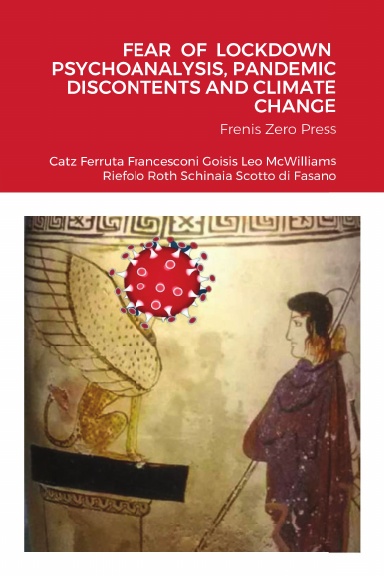
Writings by: H. Catz, A. Ferruta,
M. Francesconi, P. R. Goisis, G.
Leo, N. McWilliams,
G. Riefolo, M. Roth, C.
Schinaia, D. Scotto Di Fasano
Editore/Publisher: Edizioni Frenis Zero
ISBN: 978-88-97479-21-5
Anno/Year: 2020
Pages: 295
Click
here to order the book/Ordina
su Lulu

Click
here to buy the book/Compra su Amazon

"Rock
Music & Psychoanalysis"
Second Edition
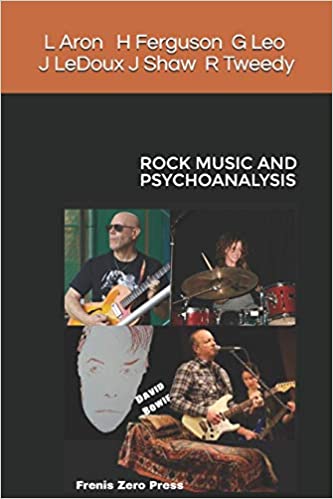
Edited
by: Giuseppe Leo
Authored
by/autori: Lewis Aron Heather
Ferguson Joseph LeDoux Giuseppe Leo John Shaw
Rod Tweedy
Editore/Publisher:
Edizioni Frenis Zero
Collection/Collana: Borders
of Psychoanalysis
Anno/Year:
2020
Pagine/Pages:
221
ISBN:978-88-97479-35-2
Click
here to buy the book/Compra su Amazon

"Essere
nella cura"

Authored
by/autori: Giacomo Di Marco & Isabella
Schiappadori
Editore/Publisher:
Edizioni Frenis Zero
Collection/Collana: Confini
della Psicoanalisi
Anno/Year:
2019
Pagine/Pages:
210
ISBN:978-88-97479-17-8
Click
here to order the book
"Enactment
in Psychoanalysis"
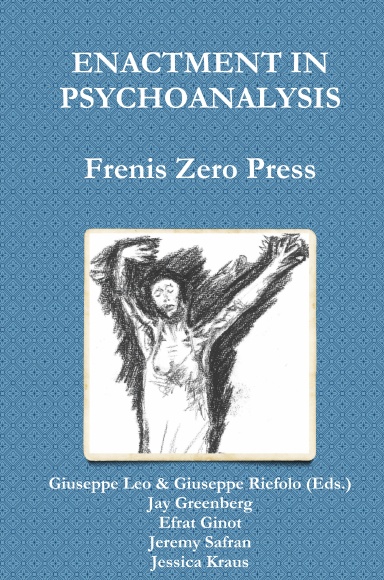
Edited
by Giuseppe Leo & Giuseppe Riefolo
Writings
by: E. Ginot J.R.
Greenberg J. Kraus J.D. Safran
Publisher:
Frenis Zero
Collection:
Borders of Psychoanalysis
Year:
2019
Pages:
326
ISBN: 978-88-97479-15-4
Click
here to order the book
"Infant
Research and Psychoanalysis"

Edited
by Giuseppe Leo
Writings
by: B. Beebe K.
Lyons-Ruth J. P. Nahum E. Solheim C.
Trevarthen E. Z. Tronick L.
Vulliez-Coady
Publisher:
Frenis Zero
Collection:
Borders of Psychoanalysis
Year:
2018
Pages:
273
ISBN: 978-88-97479-14-7
Click
here to order the book
"Fundamentalism
and Psychoanalysis"
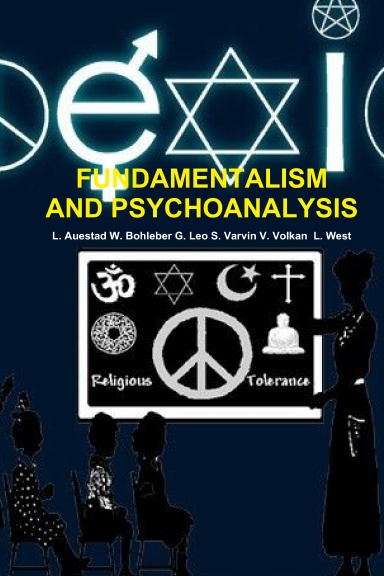
Edited
by Giuseppe Leo
Prefaced
by: Vamik D. Volkan
Writings
by: L. Auestad W.
Bohleber S. Varvin L. West
Publisher:
Frenis Zero
Collection:
Mediterranean Id-entities
Year:
2017
Pages:
214
ISBN: 978-88-97479-13-0
Click
here to order the book
"Psicoanalisi, luoghi della resilienza
ed immigrazione"
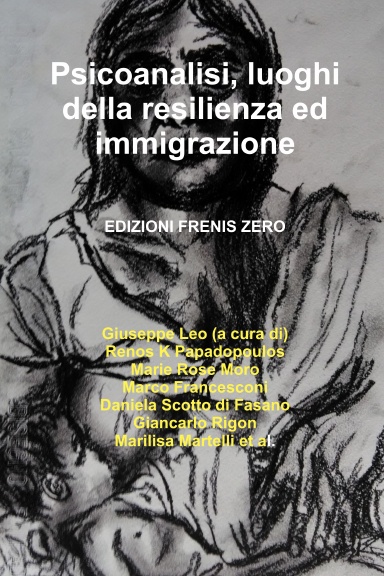
Edited
by/a cura di: Giuseppe Leo
Writings by/scritti di:
S.
Araùjo Cabral, L.
Curone,
M. Francesconi,
L.
Frattini,
S.
Impagliazzo,
D. Centenaro Levandowski, G. Magnani, M. Manetti, C. Marangio,
G. A. Marra e Rosa, M. Martelli,
M. R. Moro, R. K. Papadopoulos,
A. Pellicciari,
G. Rigon,
D.
Scotto di Fasano,
E. Zini, A. Zunino
Editore/Publisher: Edizioni Frenis Zero
Collection/Collana: Mediterranean
Id-entities
Anno/Year:
2017
Pagine/Pages:
372
ISBN:978-88-97479-11-6
Click
here to order the book
"Psicoanalisi in Terra Santa"

Edited
by/a cura di: Ambra Cusin & Giuseppe Leo
Prefaced by/prefazione
di:
Anna Sabatini Scalmati
Writings by/scritti di:
H. Abramovitch A. Cusin M. Dwairy
A. Lotem M.
Mansur M. P. Salatiello Afterword
by/ Postfazione
di:
Ch. U. Schminck-Gustavus
Notes by/ Note di: Nader Akkad
Editore/Publisher: Edizioni Frenis Zero
Collection/Collana: Mediterranean
Id-entities
Anno/Year:
2017
Pagine/Pages:
170
ISBN:978-88-97479-12-3
Click
here to buy the book
"Essere bambini a Gaza. Il trauma
infinito"

Authored
by/autore: Maria Patrizia Salatiello
Editore/Publisher: Edizioni Frenis Zero
Collection/Collana: Mediterranean
Id-entities
Anno/Year:
2016
Pagine/Pages:
242
ISBN:978-88-97479-08-6
Click
here to buy the book
Psychoanalysis,
Collective Traumas and Memory Places (English Edition)
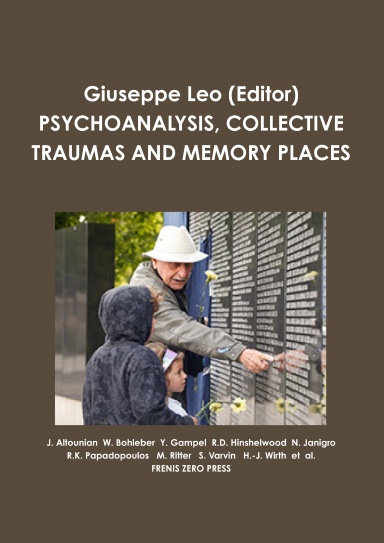
Edited
by/a cura di: Giuseppe Leo Prefaced by/prefazione
di:
R.D.Hinshelwood
Writings by/scritti di: J. Altounian
W. Bohleber J. Deutsch
H. Halberstadt-Freud Y. Gampel
N. Janigro R.K. Papadopoulos
M. Ritter S. Varvin H.-J. Wirth
Editore/Publisher: Edizioni Frenis Zero
Collection/Collana: Mediterranean
Id-entities
Anno/Year:
2015
Pagine/Pages:
330
ISBN:978-88-97479-09-3
Click
here to buy the book
"L'uomo
dietro al lettino" di
Gabriele Cassullodi
Gabriele Cassullodi
Gabriele Cassullo

Prefaced
by/prefazione di: Jeremy
Holmes
Editore/Publisher: Edizioni Frenis Zero
Collection/Collana: Biografie
dell'Inconscio
Anno/Year:
2015
Pagine/Pages:
350
ISBN:978-88-97479-07-9
Click
here to order the book
"Neuroscience
and Psychoanalysis" (English Edition)

Edited by/a cura di: Giuseppe Leo
Prefaced by/prefazione
di: Georg Northoff
Writings by/scritti di: D. Mann A. N. Schore
R. Stickgold
B.A. Van Der Kolk
G. Vaslamatzis M.P. Walker
Editore/Publisher: Edizioni Frenis Zero
Collection/Collana: Psicoanalisi e neuroscienze
Anno/Year: 2014
Pagine/Pages: 300
ISBN:978-88-97479-06-2
Click
here to order the book
Vera
Schmidt, "Scritti su psicoanalisi infantile ed
educazione"

Edited by/a cura di: Giuseppe Leo
Prefaced by/prefazione
di: Alberto Angelini
Introduced by/introduzione di: Vlasta Polojaz
Afterword by/post-fazione di: Rita Corsa
Editore/Publisher: Edizioni Frenis Zero
Collana: Biografie dell'Inconscio
Anno/Year: 2014
Pagine/Pages: 248
ISBN:978-88-97479-05-5
Click
here to order the book
Resnik,
S. et al. (a cura di Monica Ferri), "L'ascolto dei
sensi e dei luoghi nella relazione terapeutica"

Writings by:A.
Ambrosini, A. Bimbi, M. Ferri,
G. Gabbriellini, A. Luperini, S. Resnik,
S. Rodighiero, R. Tancredi, A. Taquini Resnik,
G. Trippi
Editore/Publisher: Edizioni Frenis Zero
Collana: Confini della Psicoanalisi
Anno/Year: 2013
Pagine/Pages: 156
ISBN:978-88-97479-04-8
Click
here to order the book
Silvio
G. Cusin, "Sessualità e conoscenza"

A cura di/Edited by: A. Cusin & G. Leo
Editore/Publisher: Edizioni Frenis Zero
Collana/Collection: Biografie dell'Inconscio
Anno/Year: 2013
Pagine/Pages: 476
ISBN: 978-88-97479-03-1
Click
here to order the book
AA.VV.,
"Psicoanalisi e luoghi della riabilitazione", a cura
di G. Leo e G. Riefolo (Editors)
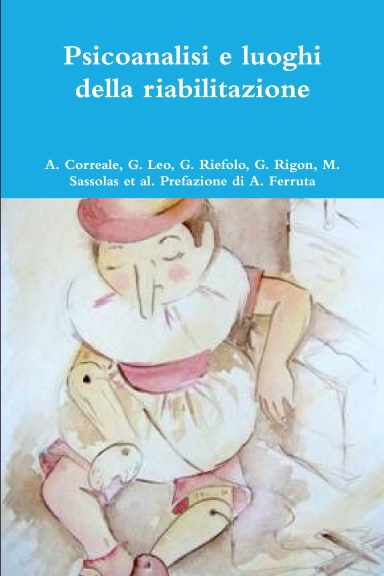
A cura di/Edited by: G. Leo & G. Riefolo
Editore/Publisher: Edizioni Frenis Zero
Collana/Collection: Id-entità mediterranee
Anno/Year: 2013
Pagine/Pages: 426
ISBN: 978-88-903710-9-7
Prezzo/Price:
€ 39,00
Click
here to order the book
AA.VV.,
"Scrittura e memoria", a cura di R. Bolletti (Editor)

Writings by: J.
Altounian, S. Amati Sas, A. Arslan, R. Bolletti, P. De
Silvestris, M. Morello, A. Sabatini Scalmati.
Editore/Publisher: Edizioni Frenis Zero
Collana: Cordoglio e pregiudizio
Anno/Year: 2012
Pagine/Pages: 136
ISBN: 978-88-903710-7-3
Click
here to order the book
AA.VV., "Lo
spazio velato. Femminile e discorso
psicoanalitico"
a cura di G. Leo e L. Montani (Editors)

Writings by: A.
Cusin, J. Kristeva, A. Loncan, S. Marino, B.
Massimilla, L. Montani, A. Nunziante Cesaro, S.
Parrello, M. Sommantico, G. Stanziano, L.
Tarantini, A. Zurolo.
Editore/Publisher: Edizioni Frenis Zero
Collana: Confini della psicoanalisi
Anno/Year: 2012
Pagine/Pages: 382
ISBN: 978-88-903710-6-6
Click
here to order the book
AA.VV., Psychoanalysis
and its Borders, a cura di
G. Leo (Editor)
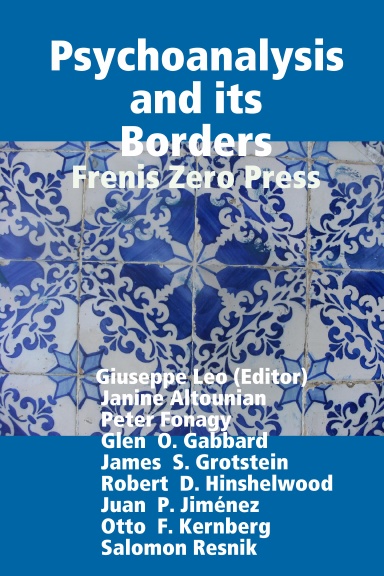
Writings by: J. Altounian, P.
Fonagy, G.O. Gabbard, J.S. Grotstein, R.D. Hinshelwood, J.P.
Jimenez, O.F. Kernberg, S. Resnik.
Editore/Publisher: Edizioni Frenis Zero
Collana/Collection: Borders of Psychoanalysis
Anno/Year: 2012
Pagine/Pages: 348
ISBN: 978-88-974790-2-4
Click
here to order the book
AA.VV.,
"Psicoanalisi e luoghi della negazione", a cura di A.
Cusin e G. Leo
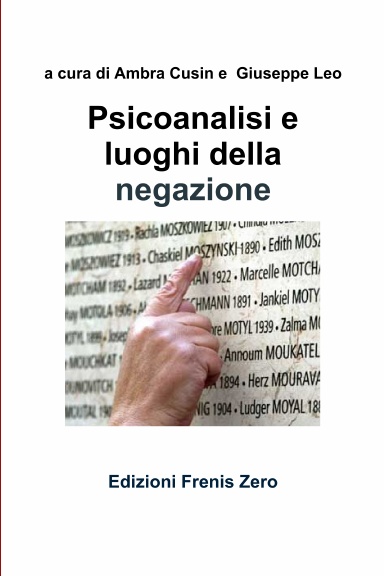
Writings by:J.
Altounian, S. Amati Sas, M. e M. Avakian, W. A.
Cusin, N. Janigro, G. Leo, B. E. Litowitz, S. Resnik, A.
Sabatini Scalmati, G. Schneider, M. Šebek,
F. Sironi, L. Tarantini.
Editore/Publisher: Edizioni Frenis Zero
Collana/Collection: Id-entità mediterranee
Anno/Year: 2011
Pagine/Pages: 400
ISBN: 978-88-903710-4-2
Click
here to order the book
"The Voyage Out" by Virginia
Woolf

Editore/Publisher: Edizioni Frenis Zero
ISBN: 978-88-97479-01-7
Anno/Year: 2011
Pages: 672
Click
here to order the book
"Psicologia
dell'antisemitismo" di Imre Hermann
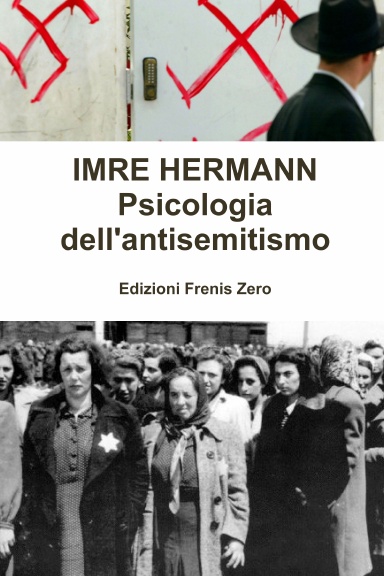
Author:Imre Hermann
Editore/Publisher: Edizioni Frenis Zero
ISBN: 978-88-903710-3-5
Anno/Year: 2011
Pages: 158
Click
here to order the book
"Vite soffiate. I vinti della
psicoanalisi" di Giuseppe Leo
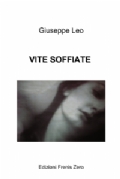
Editore/Publisher: Edizioni Frenis Zero
Edizione: 2a
ISBN: 978-88-903710-5-9
Anno/Year: 2011
Click
here to order the book
"La Psicoanalisi e i suoi
confini" edited by Giuseppe Leo
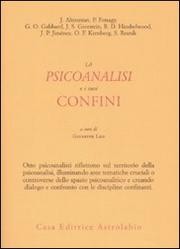
Writings by: J.
Altounian, P. Fonagy, G.O. Gabbard, J.S. Grotstein, R.D.
Hinshelwood, J.P. Jiménez, O.F. Kernberg, S. Resnik
Editore/Publisher: Astrolabio Ubaldini
ISBN: 978-88-340155-7-5
Anno/Year: 2009
Pages: 224
Prezzo/Price: € 20,00
"La Psicoanalisi. Intrecci Paesaggi
Confini"
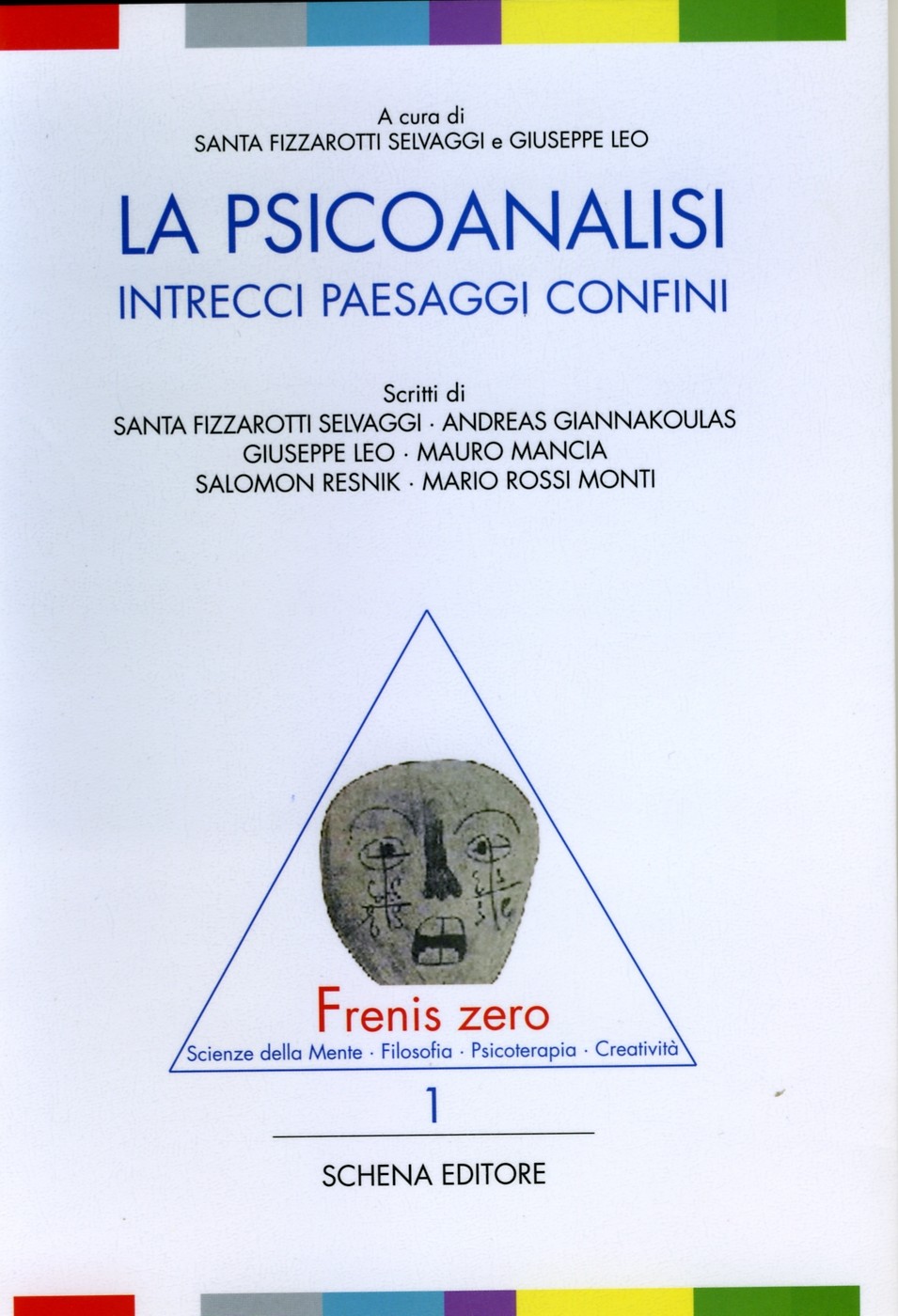
Edited by S. Fizzarotti Selvaggi, G.Leo.
Writings by: Salomon Resnik, Mauro Mancia, Andreas Giannakoulas,
Mario Rossi Monti, Santa Fizzarotti Selvaggi, Giuseppe Leo.
Publisher: Schena Editore
ISBN 88-8229-567-2
Price: € 15,00
Click here to order the
book |
|
While
I've been working during the covid-19 pandemic, there has been a rapid
increase in referrals for work with patients outside the city that I
work in, referrals particularly for remote therapy. A patient in
Hyderabad needs a therapist, somebody in Mumbai needs a therapist,
somebody in Kolkata needs a therapist. Can you work with this patient?
I
am a clinical psychologist working in New Delhi. When I get these
referrals, I often wonder if I should connect the patient to a
therapist in their own city. My experience of my own personal therapy
online is painful – there is a huge distance; technology is not
enough to fill that gap. There is always an experience of a sensory
deprivation. It always feels disembodied.
I
am now comfortable with remote therapy, both in terms of providing it
to my patients and my own “remote” and “long-distance”
sessions. Given a choice though, I still very much prefer the
warmth and the heat of the in-person sessions. As a patient, what I
experience is a person breathing behind me, a person whose warmth has
settled in, whose voice helps me when I'm alone, a room that I now
call my own, parts of me which visit it inside my mind, when I'm
disturbed. And so, this room that I now talk from, how is it the same
as the consultation room? How do I call this working together in
therapy?
Remote
therapy is a painful experience. Nothing that I do can replace how
fulfilling and wholesome the relationship feels when we're both in the
same room.
So,
when patients call from another city, I often feel confused. If I do
have space to work with a new patient, I can take on a remote patient
too. But should I work with a patient remotely? Often, my colleagues
in other cities, are also now easily referring patients in their own
cities. Geographical boundaries have been blurred, if not erased. I
often end up wondering if I'm taking away an opportunity for this
patient to have an experience of a wholesome relationship. Should they
not have the chance to explore what it would feel like to be with
their therapist in the same room? Can I be the one to judge whether I
should take this away from them?
It's
become even trickier now. Boundaries are fuzzy. A therapist in America
can easily work with a new patient in India. What
if I need to refer the patient to a psychiatrist?
It
is all blurry, the work is all blurry.
Remote
therapy has its limitations. Our assessment consultations help us
understand how best we can help our patient (Coltart, 1987; Milton,
1997; NIMHANS, 2020). Therapy helps us as patients and helps our
patients to understand the reasons for each of our choices and this
helps with the process of change, wherein the choice to do things
differently is now upon the patient. Upon the arrival of this choice,
we can decide to do things differently. At the birth of every
therapeutic relationship, is a part of the patient that wishes to get
better, that has known a good and healthy relationship in the past and
that wishes to take responsibility for the choices that they make in
life. It is our memory and our experience of something good that we
have known before that makes us seek help. It is this part that we
ally with when we work together with our patient. While working we
always keep our omnipotent fantasies in check and remember the painful
fact that we can’t ever replace the internal mother. However, what
we can maybe offer our patient is gradual work that helps build on
this good that they have known and experienced inside and help them
confront their own destructiveness.
With
a very disturbed patient who has faced incredibly early trauma, the
distance in remote work can also be experienced as a violence that is
far too difficult to bear. Psychotherapy might trigger a patient more
and there may be a need of an intervention with help from an allying
professional, like a psychiatrist, to be able to intervene and to help
build a better frame for psychotherapy. Psychotherapy requires not
just psychological mindedness but also a responsibility and a
willingness to work together in therapy (Coltart, 1987). At one stage
of our life, from an experience of having known goodness inside, we’re
able to hold an image of the one we love inside our minds. In therapy,
it is this that allows us to talk to the person behind us without
being compelled to look at them behind. It is a painful experience
because in that moment we must remain separate yet hold the person
inside us. The comfort of the therapist in the same room allows the
presence of a body to be felt. The consultation room becomes an
internal home, whose images we carry, whose body and comfort allows us
to breathe, to think. If this internal image, though, is not there to
begin with, then remotely working can become a continuous experience
of a phantom limb. Thinking about this pain without having a sustained
internal image can be too demanding a task. Remote therapy poses far
too many challenges.
At
a conference that I had attended recently, there was a discussion
about work during the covid-19 pandemic. The discussion was largely
about the impact of covid-19 on our minds and our setting. A
participant was then reflecting and talking about how people are
rapidly beginning to work online and are easily taking on patients
that they’re working with remotely. In jest, he then said, ‘By the
looks of it, the dictum would soon be 'no memory, no desire, and no
consultation room.'’
Everybody
was splitting in laughter. I too laughed. His sharp and poignant point
had pierced into my skin with joy. Listen without memory and without
desire, but also now without a consultation room.
It's
become as simple as that. The value of the consultation room is
depleted.
So,
when patients in Kolkata, Mumbai or Bangalore call me, I too feel
faced with a dilemma. I have respectable colleagues in all these
cities. I can refer the patient there; they can work with a therapist
who they have the option of meeting once the pandemic eases and once
we go back to work.
If
a patient calls me from another city, I try and offer that to my
patient first. I let them know that I work in New Delhi and that our
work will be online. If they tell me they're okay with remote therapy,
at least both of us have begun the work acknowledging an already
present gap.
In
one clinical seminar, we were thinking about how patients looking
particularly for remote therapy often also come with a history of
neglect. We were thinking about how it's possible to provide remote
therapy, but this also needs to be spoken about - the fact that
therapy is now online. When we work with our patients, this remoteness
begins to show up, that they feel a gap - and the gap needs to be
acknowledged. This is where we are accepting that there is a lack,
unlike perhaps their experience in the past where a lack and a neglect
went unacknowledged. The acknowledgement of this lack would also maybe
allow us to work with a possible history of neglect.
To
be able to do this still, though, as a therapist, I need to
acknowledge the sheer lack with which I am working. We need to be able
to take responsibility for what we can provide and know what we cannot
provide, know what we're taking away from the patient when we agree to
work remotely and online.
Remote
therapy especially now during this devastating pandemic is unbearable
and hard. The concreteness of our setting sometimes doesn’t allow
certain pathologies to surface (Polmear, 2020). Remote therapy can
perhaps help to think more about absence. Remotely working and having
to bear not being able to have a full and whole relationship, can also
provide an opportunity to work through our guilt – the guilt of
having damaged our significant relationships – and experience
gratitude – experience the feeling of relationships continuing to
exist with all the sorrow and all the joy.
It
is only after a period of some separation that we can allow ourselves
the entry of a third. Between a mother and a baby, it is only after an
experience of some separation that the father can enter the minds of
the mother and the baby. The mother and the baby can often get caught
in painful positions and repetitive patterns; it is the father that
comes in and allows the mother and the baby the relief of a third
perspective. If the mother and the baby remain only a dyad – there
is a perversion. With the entry of the father is the entry of the
voice of reason. With the realization that we are the birth of a
creative act between our parents is the birth of feelings of anger,
along with feelings of guilt and gratitude. This shift in our feelings
of our raging hate to our feelings of anger, guilt and gratitude can
also only happen with the acknowledgement of a gap. (Klein, 1986;
Money-Kyrle, 2014; Winnicott, 1971)
I
do thus understand that remote work has its own charm. It is a
different experience, and maybe it is a different kind of a
relationship which still allows work to happen. But I am still
sceptical of remote work. I would much rather prefer working with my
patients in the same room. I also very much prefer working with my
therapist in the same room.
All
this brings me to the question, what is the setting? Our setting
symbolizes the union of the father and the mother. Our setting is a
potential for the birth of something creative. Irma Pick (2018) has
famously said that when we work with our patients, we need two hands:
one to hold compassionately the needy and suffering part of the
patient and the other to hold firmly and grapple with the hatred of
thinking and feeling. And our setting is this union of two – our
setting is the thinking heart that carries a potential for something
creative, that allows a third to arrive and a new and different
perspective to be born. Our
setting indicates our patient’s relationship to the third.
The
setting is also our internalized institution (Tuckett, 2020). Our
setting is how we've internalised our institution(s), our many
supervisors, and diverging schools of thought. Absorbing a different
model of thinking, thinking about what a different school (of thought),
a different mind, and a different therapist may have to offer, leaves
us with the angst of separation. In that moment, the castrating fear
is that everything you have known is being destroyed. In our
consultation room this feeling shows itself when we are stripped of
the only potency we have in the here-and-now – to think. Our
desperate search for penetration makes way for sometimes a painful
penetration in the room. We begin to rely on concretized words. It is
from a painful experience of separating ourselves from thoughts we
have known that we learn to enter the terrain of the unknown on this
journey with our patients. It is from this separation that we allow
ourselves to absorb something external and outside.
It
is a separation that allows us to absorb different perspectives and
sit with a multitude of views. Paradoxically, it is from our
experience of feeling the war of diverging schools of thinking,
touching the war of (professional) bodies, inside our minds, that we
learn to abandon theory, so we can learn to work with our patient in
the here-and-now. The setting is our internalized model of our
institution(s) that we have experienced, felt, and known. And remote
therapy is one setting, that also offers one such setting that we must
together think about.
Remotely
working, while it offers new experiences and opportunities to continue
our work, still feels new. I wonder about how, now that we are
smoothly making a transition to providing more and more remote therapy,
if this too is like a "new strain.” What is our consultation
room now? What is the new setting? I suspect that we would have to
spend a lot more time thinking about and understanding this new strain
and this new connection. For now, I suppose we listen without memory
and without desire, but we also keep in our minds, our consultation
room. And by doing that I wish we sit together and engage in a
creative act – think about our consultation room, think about our
work and what it means to work now with this new connection.
|
References
1)
Coltart, N. (1987).
Diagnosis and Assessment for Suitability for Psycho-Analytical
Psychotherapy. British Journal of Psychotherapy, 4(2),
127-134. https://doi.org/10.1111/j.1752-0118.1987.tb01009.x
2)
Klein, M. (1986). A
Study of Envy and Gratitude. The Selected Melanie Klein (pp.
211-241). New York: Hogarth Press.
Milton, J. (1997). Why assess?
Psychoanalytical assessment in the NHS. Psychoanalytic
Psychotherapy, 11(1), 47-58. https://doi.org/10.1080/02668739700700051
Money-Kyrle, R. (2014). Aim of
Psychoanalysis. Man’s Picture of His World: A
Psychoanalytic Study, pp. 229-236. London: Karnac Books
National Institute of Mental Health
and Neurosciences. (2020). Guidelines for Tele-Psychotherapy
Services, Version 1.0, April 2020. https://nimhans.ac.in/wp-content/uploads/2020/04/Guidelines-for-Telepsychotherapy-Services-17.4.2020.pdf
6)
Pick,
B. I., Davids, F. M., & Shavit, N. (2018). Foreword. Authenticity
in the Psychoanalytic Encounter: The Work of Irma Brenman Pick
(The New Library of Psychoanalysis) (1st ed.). New York:
Routledge.
7)
Polmear,
C. P. (2020, November 27–29). Where is the dog in the room?
[Paper]. Contagion, Containment and Staying Connected, London,
UK.
Tuckett, D. (2020, November 27– 29).
The Covid enigma: Minding the gap of our ignorance. [Discussion
in Conference Session]. Contagion, Containment and Staying
Connected, UCL, London, UK.
Winnicott, D.W. (1971). Transitional
Objects and Transitional Phenomena. Playing and Reality,
pp. 1-25, London: Tavistock Publications.
|
XXXXXXXXXXXXXXXXXXX XXXXXXXXXXXXXXXXXXX XXXXXXXXXXXXXXXXXXX XXXXXXXXXXXXXXXXXXX XXXXXXXXXXXXXXXXXXX XXXXXXXXXXXXXXXXXXX XXXXXXXXXXXXXXXXXXX XXXXXXXXXXXXXXXXXXX XXXXXXXXXXXXXXXXXXX XXXXXXXXXXXXXXXXXXX XXXXXXXXXXXXXXXXXXX XXXXXXXXXXXXXXXXXXX XXXXXXXXXXXXXXXXXXX XXXXXXXXXXXXXXXXXXX XXXXXXXXXXXXXXXXXXX XXXXXXXXXXXXXXXXXXX XXXXXXXXXXXXXXXXXXX XXXXXXXXXXXXXXXXXXX XXXXXXXXXXXXXXXXXXX XXXXXXXXXXXXXXXXXXX XXXXXXXXXXXXXXXXXXX XXXXXXXXXXXXXXXXXXX XXXXXXXXXXXXXXXXXXX XXXXXXXXXXXXXXXXXXX XXXXXXXXXXXXXXXXXXX XXXXXXXXXXXXXXXXXXX XXXXXXXXXXXXXXXXXXX XXXXXXXXXXXXXXXXXXX XXXXXXXXXXXXXXXXXXX XXXXXXXXXXXXXXXXXXX XXXXXXXXXXXXXXXXXXX XXXXXXXXXXXXXXXXXXX XXXXXXXXXXXXXXXXXXX XXXXXXXXXXXXXXXXXXX XXXXXXXXXXXXXXXXXXX XXXXXXXXXXXXXXXXXXX XXXXXXXXXXXXXXXXXXX XXXXXXXXXXXXXXXXXXX XXXXXXXXXXXXXXXXXXX XXXXXXXXXXXXXXXXXXX XXXXXXXXXXXXXXXXXXX XXXXXXXXXXXXXXXXXXX XXXXXXXXXXXXXXXXXXX XXXXXXXXXXXXXXXXXXX XXXXXXXXXXXXXXXXXXX XXXXXXXXXXXXXXXXXXX XXXXXXXXXXXXXXXXXXX XXXXXXXXXXXXXXXXXXX XXXXXXXXXXXXXXXXXXX XXXXXXXXXXXXXXXXXXX XXXXXXXXXXXXXXXXXXX XXXXXXXXXXXXXXXXXXX XXXXXXXXXXXXXXXXXXX XXXXXXXXXXXXXXXXXXX XXXXXXXXXXXXXXXXXXX XXXXXXXXXXXXXXXXXXX XXXXXXXXXXXXXXXXXXX XXXXXXXXXXXXXXXXXXX XXXXXXXXXXXXXXXXXXX XXXXXXXXXXXXXXXXXXX XXXXXXXXXXXXXXXXXXX XXXXXXXXXXXXXXXXXXX XXXXXXXXXXXXXXXXXXX XXXXXXXXXXXXXXXXXXX XXXXXXXXXXXXXXXXXXX XXXXXXXXXXXXXXXXXXX XXXXXXXXXXXXXXXXXXX XXXXXXXXXXXXXXXXXXX XXXXXXXXXXXXXXXXXXX XXXXXXXXXXXXXXXXXXX XXXXXXXXXXXXXXXXXXX XXXXXXXXXXXXXXXXXXX XXXXXXXXXXXXXXXXXXX XXXXXXXXXXXXXXXXXXX XXXXXXXXXXXXXXXXXXX XXXXXXXXXXXXXXXXXXX XXXXXXXXXXXXXXXXXXX XXXXXXXXXXXXXXXXXXX XXXXXXXXXXXXXXXXXXX XXXXXXXXXXXXXXXXXXX XXXXXXXXXXXXXXXXXXX XXXXXXXXXXXXXXXXXXX XXXXXXXXXXXXXXXXXXX XXXXXXXXXXXXXXXXXXX XXXXXXXXXXXXXXXXXXX XXXXXXXXXXXXXXXXXXX XXXXXXXXXXXXXXXXXXX XXXXXXXXXXXXXXXXXXX XXXXXXXXXXXXXXXXXXX XXXXXXXXXXXXXXXXXXX XXXXXXXXXXXXXXXXXXX XXXXXXXXXXXXXXXXXXX XXXXXXXXXXXXXXXXXXX XXXXXXXXXXXXXXXXXXX XXXXXXXXXXXXXXXXXXX XXXXXXXXXXXXXXXXXXX XXXXXXXXXXXXXXXXXXX |
|
|
|
|
|
|
|
|
|
|
|
|
|
|
|
|
|
|
|
|
|
|
|
|
|
